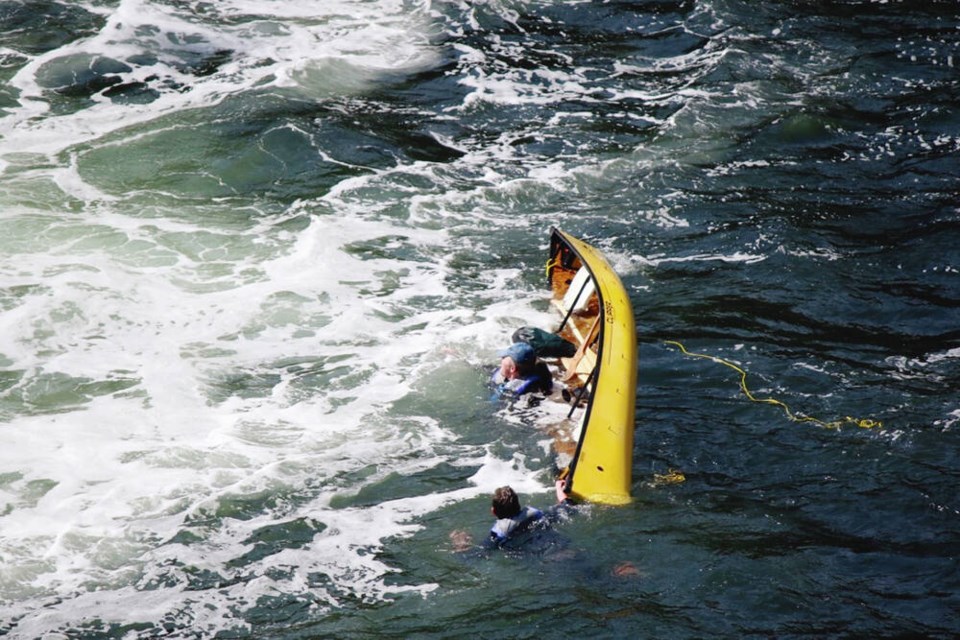A Nanaimo father and son are safe, thanks to a nearby whale-watching vessel, after their canoe flipped, dumping them into the rough, frigid waters between Mudge Island and Vancouver Island.
The 30-foot vessel Kula, with Vancouver Island Whale Watch, had left Nanaimo at noon Saturday, arriving at Dodd Narrows about 15 minutes later, captain Rodrigo Menezes said. At the time, the currents were “flooding strongly,” reaching velocities around seven knots, according to the boat’s chart plotter.
When he saw two males in a canoe on their way to Mudge Island, Menezes slowed the Kula to wait because “it was clear to me it wouldn’t be an easy crossing.”
Rebecca Stirling, the Kula’s marine naturalist, said Tuesday there were whirlpools in the water and the wind was going against the current, so there were bigger standing waves than usual. She was “really surprised” to see two people in a canoe, she said.
When the Kula was about 50 metres from Mudge Island, the canoe suddenly flipped over. Its occupants hung onto the canoe and waved for help, Menezes said.
The first attempt to rescue them from the water was not successful, Menezes said.
“I wasn’t able to get close enough due to shallow waters and strong currents which would have put the boat and my passengers also at risk.”
Because the two had on lifejackets, he decided to stay close, but wait until the currents carried them to the north side of the narrows, where the rescue would be safer. Stirling pulled out the boat’s onboard safety equipment.
When they reached more open waters, Menezes said, he was able to shut down the engines, get closer to the canoe and throw out a life ring. First the father and then the son were pulled onto the Kula. The canoe was attached to the boat. A second vessel with the whale-watching company arrived to provide assistance.
Menezes figures the two had been in the water about 10 minutes.
Stirling said the father was exhausted when he was taken on board.
The dozen passengers on the Kula pressed food and hot drinks on the father and son.
Menezes said he assessed the condition of the two, who were not hurt and did not show any signs of being hypothermic. He offered to take them to Nanaimo, where an ambulance could meet them, but they refused, opting to return to the Cedar boat ramp, where their vehicle was parked.
The canoe was put back in the water and the Kula stood by until they made it to shore.
Later, the father called the company office to thank the captain, who reported the incident to the Canadian Coast Guard.
Stirling recommends preparing for an emergency by thinking through what to do if something happens, because it can be difficult to think clearly in the midst of a crisis. In this case, the father and son did one thing right that might have saved their lives. “They had their lifejackets on, and that really made a 100 per cent difference, for sure,” she said.
• To comment on this article, write a letter to the editor: [email protected]



